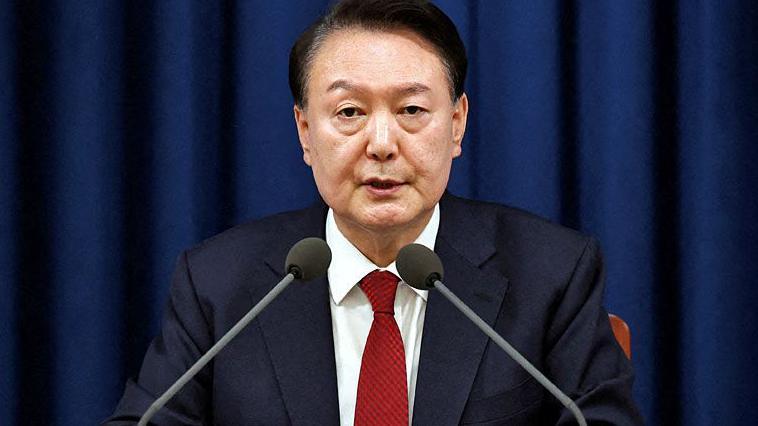S Korea's impeached president defiant as arrest deadline passes
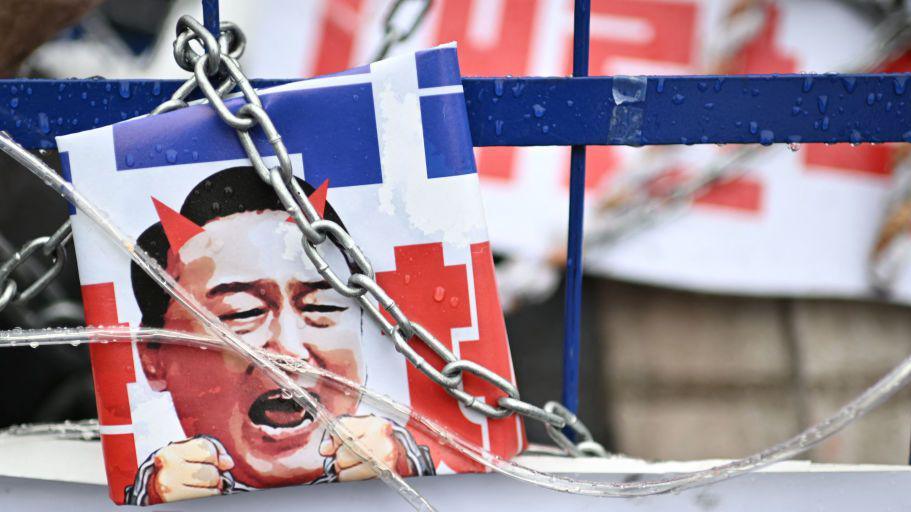
Investigators are seeking to arrest Yoon over his failed attempt to impose martial law
- Published
South Korea's suspended president Yoon Suk Yeol remains defiant in his newly-fortified residence, as investigators seek to extend the arrest warrant over his short-lived martial law order.
The current warrant - which was due to expire at midnight local time (15:00 GMT) - was issued after Yoon ignored multiple summonses to appear for questioning on insurrection and abuse of power charges.
Anti-corruption investigators tried to carry out the arrest on Friday - only to call it off after a six-hour standoff with the presidential security service at Yoon's residence.
Yoon's security team have since installed barbed wire and barricaded the compound with buses.
Investigators told the BBC they had asked the police to execute the warrant, in the hope their efforts carry more weight.
But police refused, saying it was legally controversial and its execution should be left to anti-corruption investigators.
Public anger has spiralled in recent weeks, as thousands of protesters braved heavy snow over the weekend, both in support of and against Yoon.
South Korea has been in crisis for the past month, ever since Yoon tried to impose martial law citing a threat from the North and "anti-state forces". The fallout continues as US Secretary of State Antony Blinken visits Seoul, seeking to stabilise ties ahead of a Donald Trump presidency.
'Human wall'
Yoon's lawyers have claimed that the warrant for his arrest was "illegal" as the anti-corruption investigators leading the criminal case against their client did not have the authority to oversee a case as serious as insurrection.
The presidential security service (PSS) has cited this as a reason for blocking Yoon's arrest - along with the fact that Yoon remains a sitting president until the constitutional court rules on his impeachment.
"For the PSS, whose primary mission is the absolute safety of the president, to comply with the execution of an arrest warrant amidst ongoing legal disputes would be tantamount to abandoning its duty," security service chief Park Jong-joon said on Sunday.
Mr Park denied accusations that his team was serving as a "private militia" for Yoon.
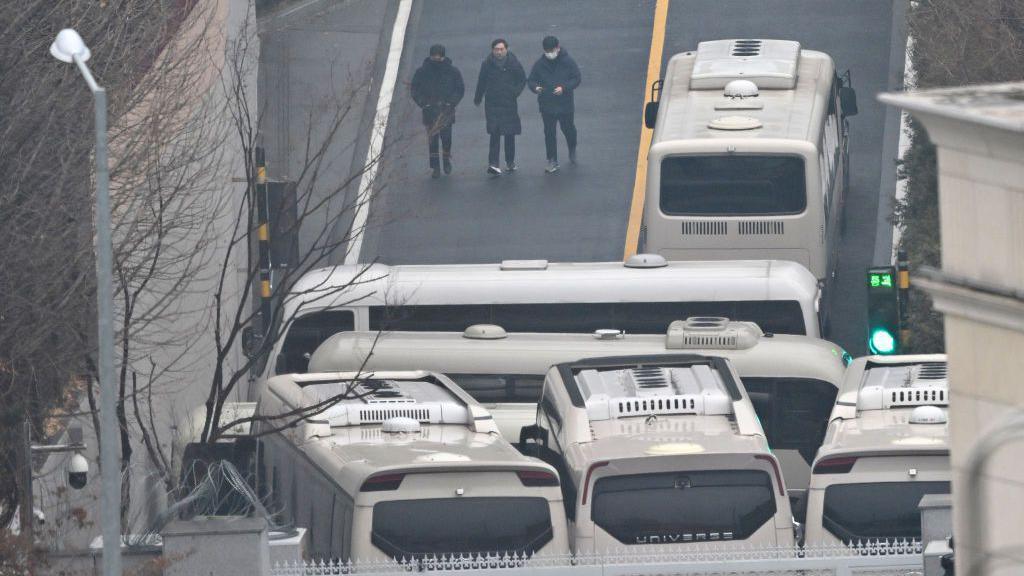
Yoon waited out the arrest deadline behind barbed wire and buses
Yoon's lawyers, who on Monday filed complaints against investigators over the arrest attempt, said Yoon has been "practically detained in his residence".
They also filed an injunction against the warrant, which was rejected by the court, and then said they were considering appealing against the decision.
Meanwhile, acting president Choi Sang-mok has resisted the opposition's calls to sack key security officials obstructing the arrest.
The BBC understands that opposition lawmakers had asked investigators to try arresting Yoon again, but "more firmly and with sufficient means".
Investigators could also apply for a new detention warrant, which has to be approved by a judge. That would allow Yoon to be detained for up to 20 days, while an arrest warrant only allows him to be held for 48 hours.
But without a change to either the situation or their approach, it seems unlikely investigators or police will be able to make the arrest.
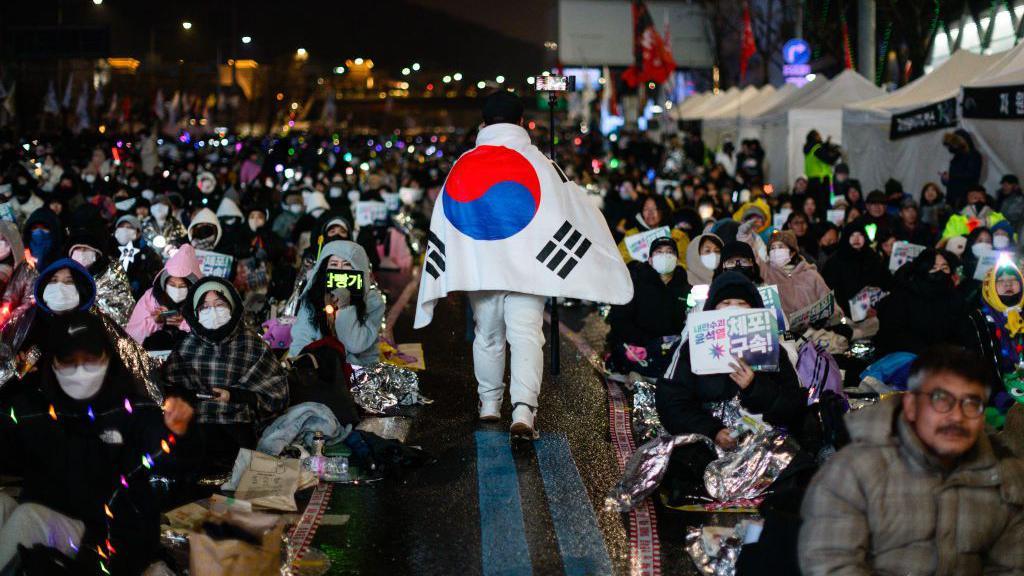
Protesters braved freezing temperatures and heavy snow to demand Yoon's arrest
As seen last Friday, they may again be blocked by the presidential security service which formed a "human wall" to protect Yoon. He himself has vowed to "fight to the end", dividing public opinion and spurring on his supporters, who have been demonstrating for days outside his home.
The tense standoff has also raised urgent questions about the robustness and effectiveness of South Korea's political and legal institutions.
Diplomatic headwinds
The situation also has consequences beyond domestic politics.
Up until last month, the Biden administration had sung Yoon's praises, delighted by his willingness to work with Washington to tackle the security threats posed by North Korea and China. The US put a lot of effort into helping South Korea repair its strained relations with Japan, so the three countries could address these issues together.
Mr Blinken's visit to Seoul, where he met the acting president as well South Korea's foreign minister, therefore comes at a difficult time for these two allies.
Yoon did not tell the US about his plans to impose martial law, meaning Washington did not have the chance to dissuade him and was unprepared for the chaos that ensued.
Blinken will not want to be drawn on the current political situation. He will instead want to focus on preserving the trilateral co-operation between Seoul, Washington and Tokyo beyond President Biden's tenure.
Speaking during a joint press conference on Monday, Blinken said the US had "full confidence" in South Korea's institutions, and reaffirmed the US government's "unwavering support for the Korean people as they work tirelessly to uphold those institutions".
"Over the past four decades Korea has written one of the most powerful, inspiring democratic stories in the world," Blinken said.
"Korea's democracy has been tested in recent weeks - just as American democracy has faced challenges throughout our history. But you are responding by demonstrating your democratic resilience."
But it's hard to disentangle the domestic and geopolitical situations. South Korea could be months away from electing a new president, and that leader may well want to break with Yoon's foreign policies.
Trump, who enters the White House in a fortnight, will also pursue his own agenda.
Additional reporting by Hosu Lee and Leehyun Choi in Seoul
Related topics
- Published4 April
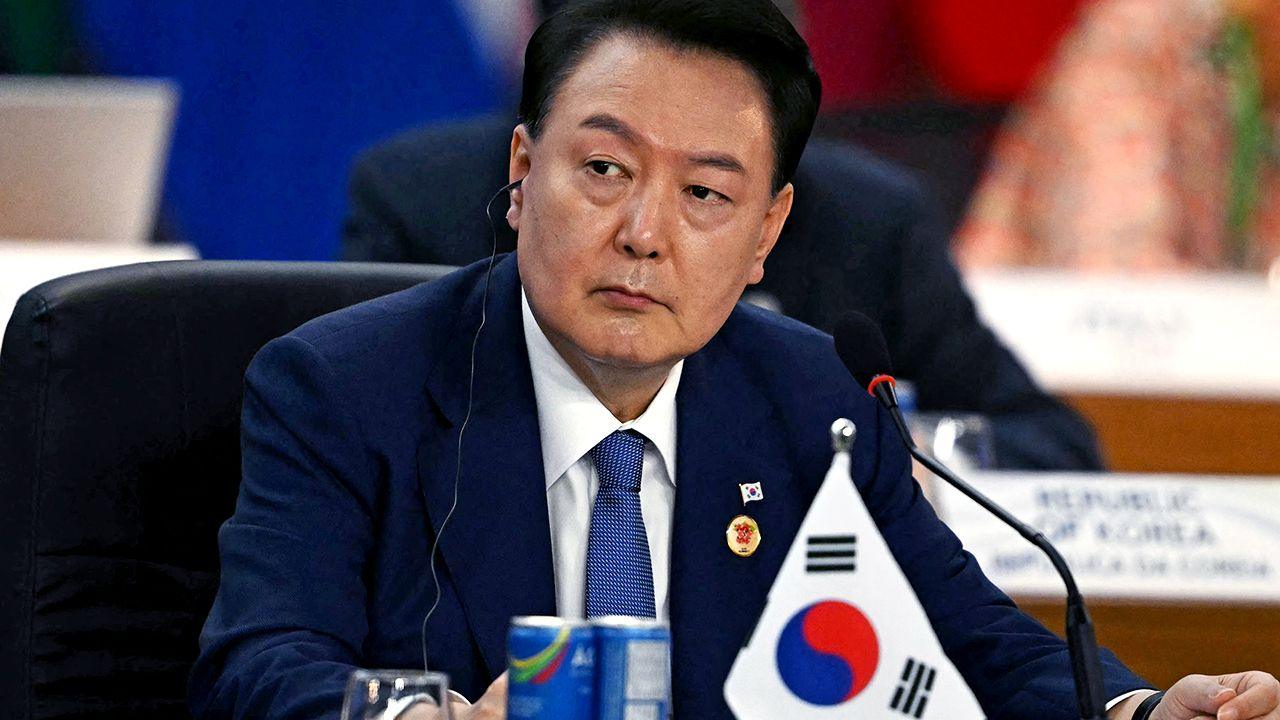
- Published4 December 2024
